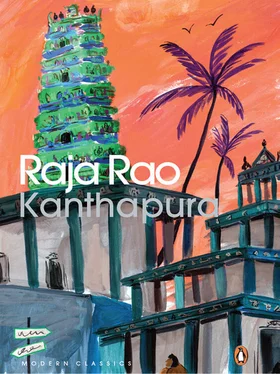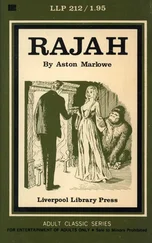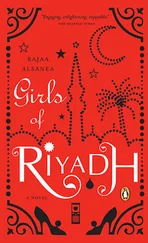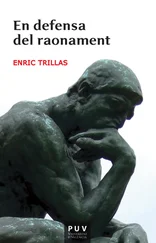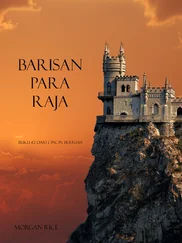Raja Rao - Kanthapura
Здесь есть возможность читать онлайн «Raja Rao - Kanthapura» весь текст электронной книги совершенно бесплатно (целиком полную версию без сокращений). В некоторых случаях можно слушать аудио, скачать через торрент в формате fb2 и присутствует краткое содержание. Год выпуска: 2014, Издательство: Penguin, Жанр: Классическая проза, на английском языке. Описание произведения, (предисловие) а так же отзывы посетителей доступны на портале библиотеки ЛибКат.
- Название:Kanthapura
- Автор:
- Издательство:Penguin
- Жанр:
- Год:2014
- ISBN:нет данных
- Рейтинг книги:3 / 5. Голосов: 1
-
Избранное:Добавить в избранное
- Отзывы:
-
Ваша оценка:
- 60
- 1
- 2
- 3
- 4
- 5
Kanthapura: краткое содержание, описание и аннотация
Предлагаем к чтению аннотацию, описание, краткое содержание или предисловие (зависит от того, что написал сам автор книги «Kanthapura»). Если вы не нашли необходимую информацию о книге — напишите в комментариях, мы постараемся отыскать её.
Kanthapura — читать онлайн бесплатно полную книгу (весь текст) целиком
Ниже представлен текст книги, разбитый по страницам. Система сохранения места последней прочитанной страницы, позволяет с удобством читать онлайн бесплатно книгу «Kanthapura», без необходимости каждый раз заново искать на чём Вы остановились. Поставьте закладку, и сможете в любой момент перейти на страницу, на которой закончили чтение.
Интервал:
Закладка:
And men are kicked and, legs tied to hands and hands tied to legs, they are rolled into the canal, and the waters splash and yells rise up, ‘Help, help, Ammayya!’ And the coolies rush up and some shout, ‘Mahatma Gandhi ki jai!’ and others shout back, ‘Vandè Mataram!’ and a bayonet is thrust at one and he falls, and again through the night rises the lamentation, ‘Ammayya — he’s gone — he’s gone — he’s gone, Moorthappa,’ and it whirls and laments over the canal and the sugar cane field and the Bebbur mound and Skeffington Coffee Estate and the mango grove of the Kenchamma temple — and crouching, we creep back through the village lane, behind lantana and aloe and cactus, looking at the Bebbur mound, where the Gandhi flag is still flying beneath the full-bosomed moon, and the canal-bund beyond which three thousand men are shrieking and slaying, weeping, wounding, groaning, crawling, swooning, vomiting, bellowing, moaning, raving, gasping. and at the village gate there’s Satamma and Nanjamma and Rachamma and Madamma, and Yenki and Nanju and Pariah Tippa and old Mota and Beadle Timmayya and Bora and Venkata, and the children are there, too, and old men from the city, and the coolies of the fields who said, ‘Punjab, Punjab’. And we ask ourselves, ‘Who will ever set foot again in this village?’ and Madanna’s wife, Madi, says, ‘Even if you want to, the police are not your uncle’s sons, are they? For every house and byre is now attached.’ And then more and more men crawl up, and more wounded are brought up, on shoulders and arms and stretchers are they brought up, naked, half covered, earth-covered are they brought up, with dangling legs, dangling hands and bleeding hands, and with bleeding mouths and bleeding foreheads and backs are they brought up, city boys and peasant boys are they, young and bright as banana trunks, city men and peasant men, lean-ribbed, long-toed, with cut moustaches and long whiskers — peasant women and city women are they, widows, mothers, daughters, stepdaughters — and some speak in free voices and some in breathless sputters, and some can do no more than wallow and wail. And women walk behind them, beating their mouths and singing, ‘Oh, he’s gone — he’s gone, Cartman Rudrappa; Hè, said he to his bulls, and hè, hè, said he to his cart, hè, hè, hè, said he to the wicked whip; he’s gone — he’s gone — he’s gone, Rudrappa,’ and another woman adds, ‘He’s gone, Potter Siddayya. ’
And old Rachanna’s wife, Rachi, can bear the sight no more, and she says, ‘In the name of the goddess, I’ll burn this village,’ and we say, ‘Nay, nay, Rachi,’ but she spits once, twice, thrice towards the Bebbur mound, and once, twice, thrice at the village gate, and she rushes towards the Pariah lines, and Lingamma and Madamma and Boramma and Siddamma follow her, crying, ‘To the ashes, you wretch of a village!’ and they throw their bodices and their sari-fringes on the earth and they raise a bonfire beneath the tamarind tree, and they light this thatch and that thatch, and we cry out, ‘Our houses, our houses,’ and they say, ‘Go, ye widows, don’t you see the dead and the dying?’ and more and more men and women go this side and that and say, ‘If the rice is to be lost let it be lost in the ashes,’ and granary and byre and haylofts are lighted. And then, as the flames rise, there are shots again, and the soldiers rush towards us, and we run and run, with the cows and the bulls and the pigs and the hens bellowing and squawking about us, and bats and rats and crows and dogs squealing behind us, through Pariah street and Potters’ street and the Weavers’ street did we rush, and slipping behind Rangamma’s backyard, we dodged among tamarind and pipal and lantana and cactus, and Seethamma and Madamma and Boramma and Lingamma and I waded through the Himavathy, and Rachamma and Rachamma’s child, and Ningamma and her granddaughter and her two nephews joined us; and then more and more women and men joined us, wounds in stomachs and wounds in breasts and wounds in faces, with bullets in thighs, and bullets in the toes, bullets in the arms — men carried men, men carried wounded women and yelping children, and they laved them in the river, and they gave them water to drink and when we were twenty-five or thirty in all, one of the city boys said, ‘Now we start, and we shall reach Maddur in an hour,’ and we rose and woke the children, and they rose with us, and beneath the hushed arching mangoes of the road, stumbling into ruts and groping over boulders, we trudged up the Maddur mountains, and not a roar came from the jungles and the moon and stars were bright above us.
And in Maddur there were policemen, and they, too, rushed to smite us, and we said, ‘We have borne so much, let them,’ and they spat and they kicked and they crushed and they banged, and then an old woman from here and a pregnant woman from there, old men, girls and children came running, Maddur women and Maddur old men, and they took us to this veranda and that, and gave us milk and coconut and banana. And they asked this about the fight and that, and of their sons who were with us, and their fathers and their husbands, and of Mota who had a scar on the right eye, and Chenna who was this-much tall, and Betel-seller Madayya, you couldn’t mistake him, he was so round, and we said what we knew and we were silent over what we knew not, and they said, ‘Ah, wait till our men come back, wait!’ But we said the police would not leave us alone and we’d go away but we’d leave our wounded with them. And we took our children and our old women and our men and we marched up the Kola pass and the Beda hills, and, mounting over the Ghats, we slipped into the Santapur jungle path, and through the clear, rustling, jungle night we walked down to the banks of the Cauvery. Across it was Mysore State, and as dawn broke over the hissing river and the jungles and the mountains, we dipped in the holy river and rose, and men came to greet us with trumpet and bell and conch, and they marched in front of us and we marched behind them, through the footpaths and the lanes and the streets. And houses came and cattle and dung smell and coconut shops and children and temple and all. They hung garlands on our necks, and called us the pilgrims of the Mahatma.
Then we ate and we slept, and we spake and we slept, and when they said, ‘Stay here, sisters,’ we said, ‘We’ll stay, sisters,’ and we settled down in Kashipura.
19
This Dasara will make it a year and two months since all this happened and yet things here are as in Kanthapura. Seethamma and her daughter, Nanja, now live in Malur Shanbhog Chikkanna’s house, and they eat with them, and grind with them, and Chikkanna, who has no children, is already searching for a bridegroom for Nanja. ‘I’ll find her a Mysore B.A.,’ he says, and day after day horoscopes come, and he says, ‘This one is better, but the other one I have heard about is better still.’ But Nanjamma, Pandit Venkateshia’s wife, Nanjamma, is alone in Temple Vishveshvarayya’s house, and she says, ‘I’m no cook, and yet that’s all I do for the Mahatma!’ That one was never born to follow the Mahatma, I tell you, she and her tongue and her arms, and her ever-falling sari. And Pariah Rachanna’s wife, Rachi, has found a place in Kanthenahalli Patel Chandrayya’s house, and she comes now and again to the Brahmin quarters with her pounded rice or her dung cakes. Her granddaughter, Mari, is working in Chenna’s house, and they say she’s already asked for in marriage by Kotwal Kirita’s son, the second one, who works with the elephant merchants from the north. And the marriage is to take place as soon as the father is out of prison. And Timmamma and I, we live in Jodidar Seetharamiah’s house, and they say always, ‘Are your prayers finished, Aunt? Are your ablutions finished, Aunt?’ before every meal. ‘Aunt, Aunt, Aunt,’ they always call us for this and that, and the children say, ‘The Mahatma has sent us his relations. There is the aunt who tells such nice stories,’ and that is me, ‘and the aunt of the pancakes,’ and that’s Timmamma, and they all laugh.
Читать дальшеИнтервал:
Закладка:
Похожие книги на «Kanthapura»
Представляем Вашему вниманию похожие книги на «Kanthapura» списком для выбора. Мы отобрали схожую по названию и смыслу литературу в надежде предоставить читателям больше вариантов отыскать новые, интересные, ещё непрочитанные произведения.
Обсуждение, отзывы о книге «Kanthapura» и просто собственные мнения читателей. Оставьте ваши комментарии, напишите, что Вы думаете о произведении, его смысле или главных героях. Укажите что конкретно понравилось, а что нет, и почему Вы так считаете.
